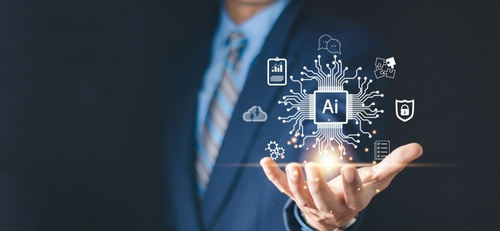This post was created using Artificial Intelligence 😂.
“Copyright protection exist in original works of authorship fixed in any tangible medium of expression, now known or later developed, from which they can be perceived, reproduced, or otherwise communicated, either directly or with the aid of a machine or device”.
The rapid advancement of artificial intelligence has given rise to a new frontier in intellectual property law – the ownership of creative works generated by AI, particularly generative AI. As AI systems become increasingly capable of producing original content, questions regarding copyright ownership, infringement, and protection have become a matter of international concern.
Generative AI refers to a subset of artificial intelligence that can autonomously generate new and creative content, such as art, music, literature, and even computer code. These AI systems, often based on neural networks, are trained on vast datasets of existing content and then use this knowledge to create new, often highly creative, works.
The core issue surrounding generative AI and copyright ownership revolves around the question of authorship. Traditional copyright laws attribute authorship to human creators, granting them exclusive rights over their creations. However, AI lacks human consciousness, raising significant questions about who should be recognized as the author of AI-generated works.
International Approaches to Copyright Ownership of Generative AI
- United States: In the United States, the Copyright Office issued a statement in 2021 that explicitly stated that copyright law only protects works created by human authors. This means that AI-generated works, regardless of their creativity, are not eligible for copyright protection. However, the Copyright Office encouraged human involvement in AI-generated works, suggesting that if a human’s creative input is sufficiently substantial, they may qualify as an author.
- European Union: The European Union (EU) has taken a different approach. The EU’s Copyright Directive, which came into effect in 2021, recognizes the possibility of AI-generated works being protected by copyright. According to this directive, the person or entity that owns or operates the AI system responsible for creating the work may be considered the author, unless a human makes a significant creative contribution.
- China: China has also addressed the issue by allowing AI-generated works to be protected by copyright. The Chinese Copyright Law amendments in 2021 explicitly state that AI-generated works can be copyrighted, with the organization or individual that owns the AI being recognized as the rights holder.
- Other Countries: Many other countries are still in the process of updating their copyright laws to address the issue of AI-generated works. The approaches taken vary widely, with some following the U.S. model of excluding AI from copyright protection and others adopting more inclusive approaches.
The question of copyright ownership of generative AI is a complex and evolving issue that varies significantly from one jurisdiction to another. As expected, there is no one and for all approach, countries around the world have adopted different approaches, reflecting the ongoing debate about the rights and responsibilities of AI systems and their human operators. As the use of generative AI continues to grow, international cooperation and legal harmonization will be essential to provide clarity and consistency in this rapidly evolving field of intellectual property law.
I have helped countless businesses protect their copyrights in the United States and foreign jurisdictions. I’d like to help you too!


